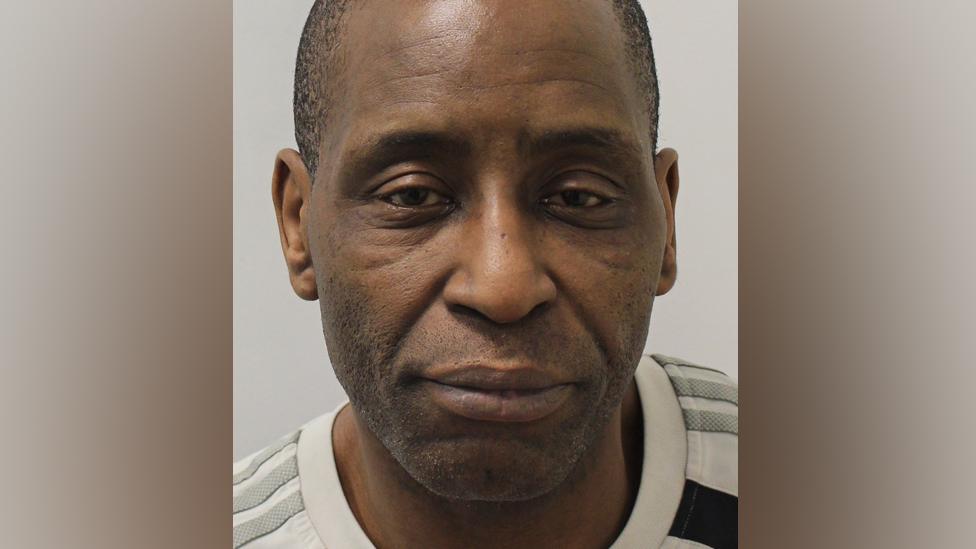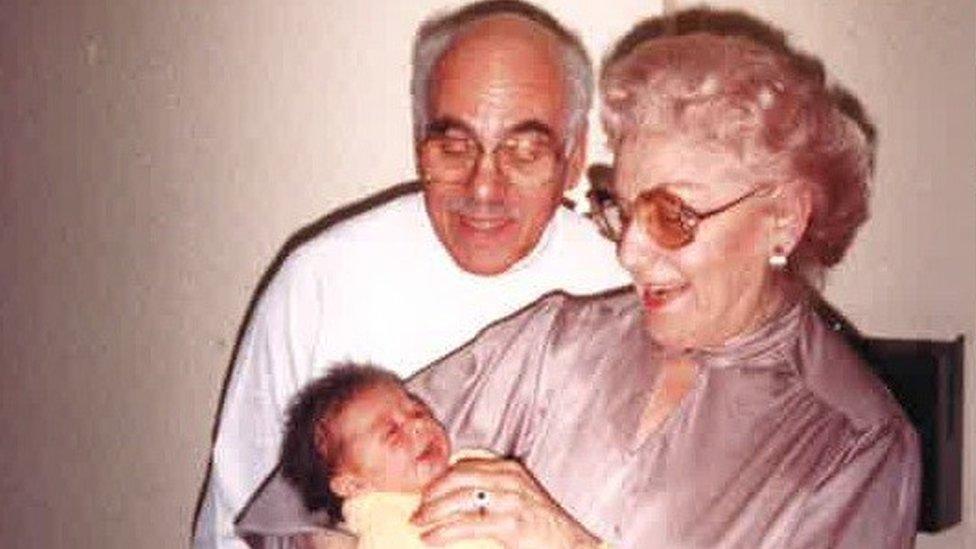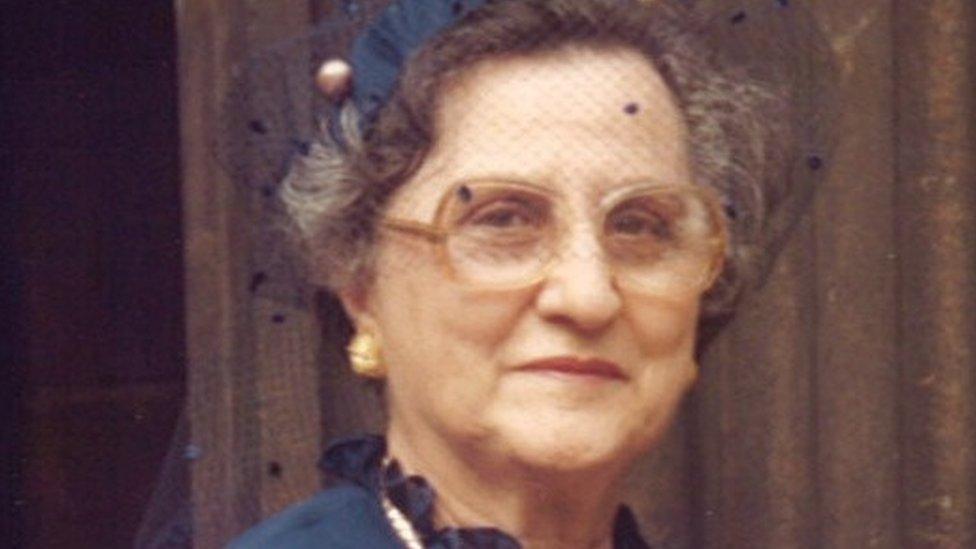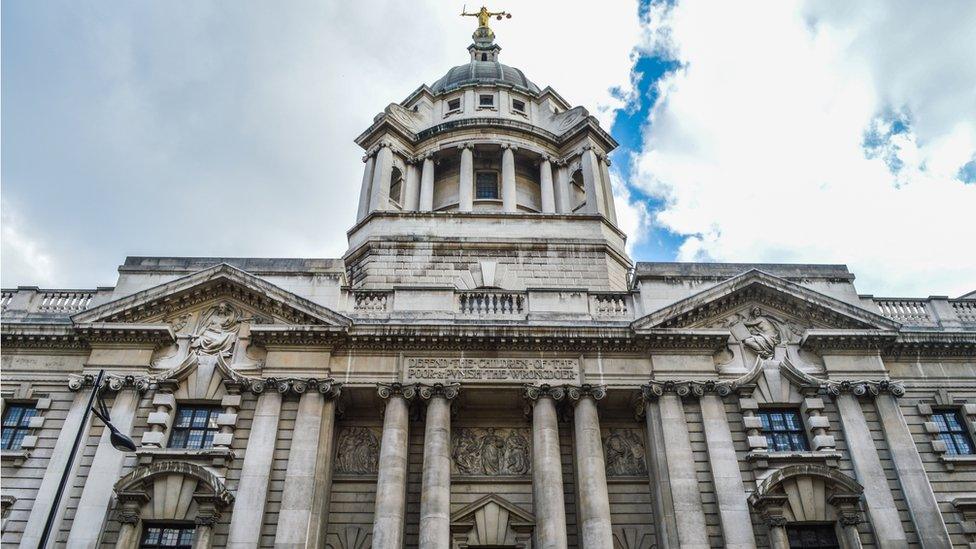Michael Weir guilty of 1998 'double jeopardy' murders
- Published

Michael Weir was found guilty of two counts of murder at the Old Bailey
A jewel thief who beat two elderly people to death in their own homes has been convicted of their murders two decades on.
Michael Weir fatally attacked 78-year-old Leonard Harris and Rose Seferian, 83, in 1998, the Old Bailey was told.
The original investigation missed clues to link the killings but DNA testing connected Weir to both London attacks after 20 years, the court heard.
Weir, 52, of Hackney, had denied two counts of murder.
Prosecutor Tom Little QC told the jury the "defenceless pensioners" had been struck repeatedly and "left for dead".
Weir was originally found guilty of murdering Mr Harris by an Old Bailey jury in July 1999, but his conviction was quashed by the Court of Appeal in 2000 on a technicality.
He was retried under the so-called double jeopardy law when new forensic evidence came to light, and prosecutors believe Weir is "the first convicted man to be convicted twice".
Trial judge Mrs Justice McGowan told the jury they had made "legal history".

Gertrude Harris and her husband Leonard were attacked in January 1998
On 28 January 1998, Weir broke into Mr Harris's flat in East Finchley, north London, leaving him with serious head injuries.
The pensioner was found by an estate agent while his wife, who suffered from dementia, was left badly injured on a bedroom floor.
An 18-carat gold watch Mr Harris had taken from a German soldier during World War Two and his gold ring were missing.
Three days after the attack, police found a palm print on the bedroom door but missed the match to the defendant at the time, the court heard.
On 5 March, Weir violently attacked Ms Seferian in her bedroom when she was at home on her own.
He stole jewellery including a gold wedding ring with her husband's initials and the date of their marriage engraved on it, a diamond solitaire gold ring, and a silver diamond ring, as well as cash.

Analysis
Clive Coleman, BBC legal correspondent
In 2005, the 800-year-old "double jeopardy" law that prevented a defendant from being tried a second time for the same offence was scrapped.
From that point the Court of Appeal was able to grant a retrial if "new, compelling, reliable and substantial evidence" had emerged.
Billy Dunlop became the first person to be convicted under the new law. He brutally murdered Julie Hogg in 1989 but, after two trials in which jurors could not reach a verdict, he was acquitted. In 2006 he was convicted at a fresh trial following the law change.
However, until today the law had only been used to convict those acquitted at a first trial - making Michael Weir the first defendant ever to be found guilty of the same murder, twice.
And as the trial judge Mrs Justice McGowan told the jury, that made "legal history".

Jurors were told a palm print found inside her Kensington flat on a window frame where Weir broke in was not matched to him until 2017.
The trial heard that by 2018 new DNA evidence had been obtained and palm prints from both murder scenes were matched to Weir.
It is believed to be the first time a defendant has been found guilty of the same murder twice, and where a second murder charge has been added to a double jeopardy case.
Det Ch Insp Shaun Fitzgerald, from the Met, said: "Nothing can ever take away the pain of Leonard and Rose's families but we hope this conviction brings them some kind of closure.
"Weir literally thought he had got away with murder but he now faces a considerable custodial sentence where he will have significant time to reflect on his utterly callous actions towards two completely innocent victims."
Sentencing was adjourned until a date to be fixed.

Rose Seferian died after being violently assaulted in her home in March 1998
- Published29 October 2019

- Published6 June 2019
